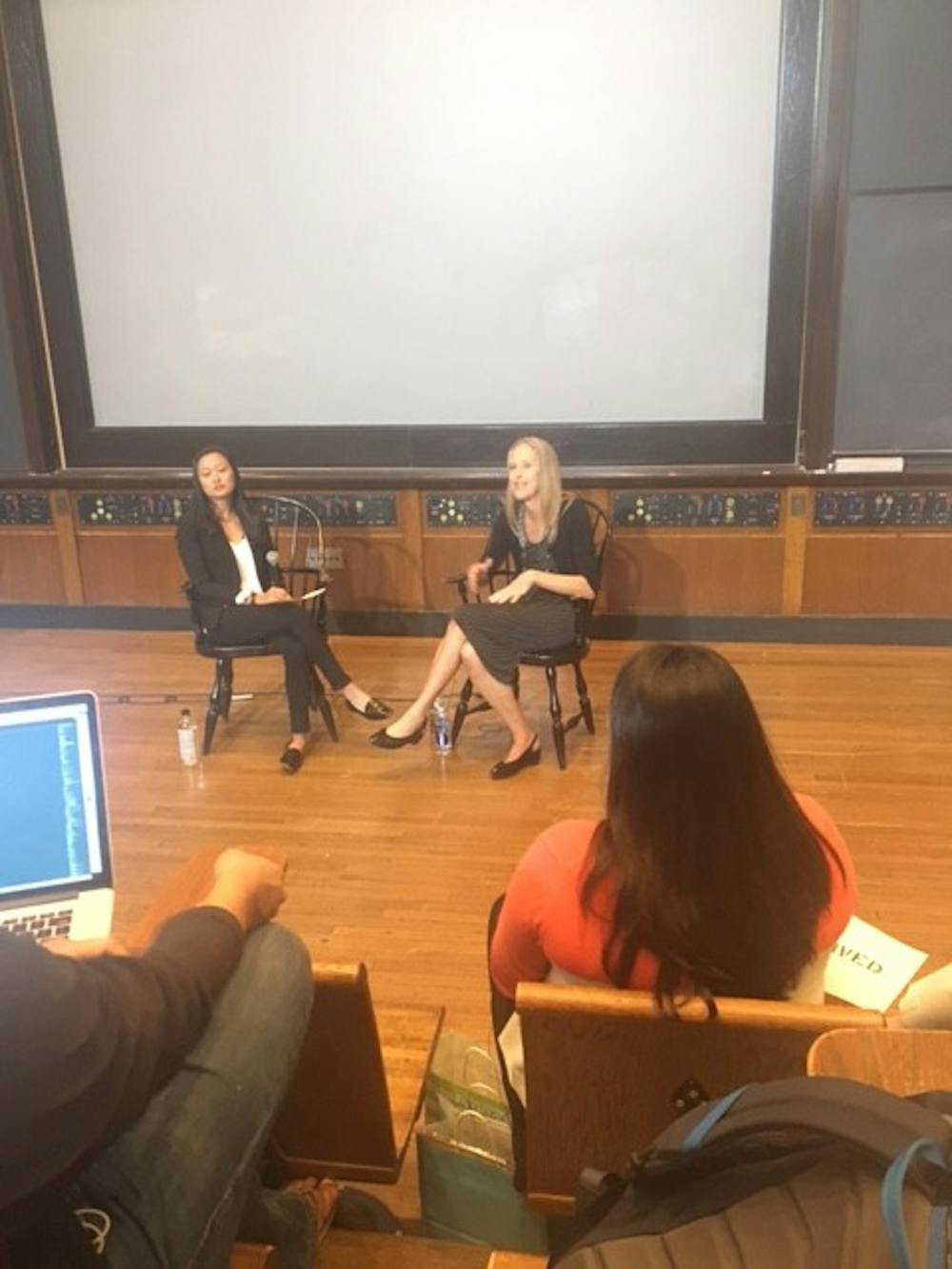Local, contextualized solutions are needed to begin solving issues of educational inequity in America and abroad, Teach For America and Teach For All founder Wendy Kopp ’89 said in a lecture on Thursday.
Teach for America is a national nonprofit organization that places recent college graduates in high-need rural and urban school districts for two-year teaching commitments. The organization grew out of Kopp’s senior thesis, titled “An Argument and Plan for the Creation of the Teacher Corps.” In 2007, Kopp created Teach For All, a global network of independent partner organizations in 44 different countries that have adapted the Teach For America model.
Kopp said that she became obsessed with fighting educational inequity during her years at the University. As president of the student organization Business Today, Kopp organized a collegiate conference on education during her senior year. Debate at the conference gave her the idea to make her thesis a recruitment plan for a national teachers’ corps.
“I’m grateful for the senior thesis requirement,” said Kopp. “Without it, Teach For America probably wouldn’t exist."
Kopp’s experience with Business Today introduced her to organizational leadership, which helped prepare her to found Teach For America the year after she graduated. Although she joined the group almost on accident — they were short on writers, so a member asked her to write an article her freshman year — she ultimately became its president, which included “managing a team of 60 people and learning how to build an organization,” Kopp said.
When asked whether she had imagined that Teach For America would grow to the size it is today, Kopp said she had envisioned the organization quickly reaching the size of the Peace Corps, but did not anticipate its global impact. At first, she didn’t think about forming a multinational organization because she was focused on improving American education, but input from reformers in various countries made her interested in creating a worldwide effort.
“There was something in the water, and in one year I heard from 13 people in 13 different countries,” Kopp explained. “I’ve learned how much more quickly we can move when we’re sharing across borders.”
Kopp said that one of the most important things she’s learned from her experience with Teach For America is that local leadership is essential for effecting change in the educational system. She cited Anseye Pou Ayiti, a partner organization of Teach For All based in Haiti, as an effort to transform a country from within by developing its own leadership.

“The issues we’re fighting right now are eerily similar from place to place. If the issues are similar, then the solutions are shareable,” Kopp said. She also emphasized that interaction and discussion between different groups in the educational system is a crucial part of forming workable solutions to inequities.
“Students, parents, businesspeople, and key stakeholders need to come together and say: ‘What do we want for our kids?’” she said. “Without doing this, I don’t think we’ll get anywhere.”
A common misconception about Teach For America is that its only goal is placing teachers in low-income urban and rural communities for two years, Kopp said. In actuality, the organization’s primary aim is to find solutions for “the big, complex, systemic challenges that can’t be solved in classrooms alone,” Kopp explained. The teacher placement component aims to help students who are not having their educational needs met within their current system.
Kopp cited Washington, D.C., Camden, N.J., and Chicago, Ill., as examples of urban school districts where Teach For America has found success in increasing high school and college graduation rates.

“The college graduation rate of kids in the Chicago Public Schools has doubled in the past eight years,” Kopp explained. She acknowledged that there is still much work to be done in these communities, as the college graduation rate in Chicago is still only at 12 percent.
Kopp said that many of the teachers she’s spoken to realize how complex the problem of solving educational inequity is after their two-year commitment, but also gain a sense of possibility and a belief that they can make a difference in changing the system.
Audience questions dealt with how Kopp used her thesis to create Teach For America, whether she has considered partnering with prison education groups, and the retention rate of Teach For America corps members after their two-year commitments.
The lecture, titled “Wendy Kopp: From Senior Thesis to Global Impact,” took place at 6 p.m. on Thursday in Frist 302. The event was sponsored by Teach For America at Princeton, the Ivy Club Leadership Committee, and Business Today, and was moderated by Business Today president Colleen Kang ’18.








